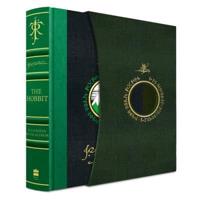Publisher's Synopsis
Armadale is a novel by Wilkie Collins, first published in 1864-66. It is the third of his four 'great novels' of the 1860s: after The Woman in White (1859-60) and No Name (1862), and before The Moonstone (1868). Plot summaryIn the German spa town of Wildbad, the 'Scotchman' Mr. Neal is asked to transcribe the deathbed confession of Allan Armadale; his story concerns his murder of the man he had disinherited (also called Allan Armadale), who had subsequently married the woman he was betrothed to under false pretensions. Under Allan's instructions, the confession is left to be opened by his son once he comes of age.Nineteen years later, the son of the murdered man, also Allan Armadale, rescues a man of his own age-Ozias Midwinter. The stranger reveals himself to Reverend Decimus Brock, a friend of Allan through his late mother, as another Allan Armadale (the son of the man who committed the murder). Ozias tells Decimus of his desperate upbringing, having run away from his mother and stepfather (Mr. Neal). The Reverend promises not to disclose their relation to one another, and the young men become close companions. Ozias remains haunted by a fear that he will harm Allan as a result of their proximity, a fate warned of in his father's letter; this feeling intensifies when the pair spend a night on a shipwreck off the Isle of Man-as it turns out, the very ship on which the murder was committed. Also on the vessel, Allan has a mysterious dream involving three characters; Ozias believes that the events are a prophecy of the future.Three members of Allan's family die in mysterious circumstances, one of which was instigated in the rescue of a woman who attempted to commit suicide by drowning. As a result, Allan inherits the estate of Thorpe-Ambrose in Norfolk and relocates there with Ozias, intending to make him steward. Once there he falls in love with Eleanor (Neelie) Milroy, the sixteen-year-old daughter of Major Milroy, to whom he has rented a cottage. During this time, correspondence takes place between Maria Oldershaw and Lydia Gwilt concerning the latter's ambitions to marry Allan as a means of achieving retribution for his family's apparent wrongdoings (she was originally a maid in the service of his mother). ..........William Wilkie Collins (8 January 1824 - 23 September 1889) was an English novelist, playwright, and short story writer. His best-known works are The Woman in White (1859), No Name (1862), Armadale (1866) and The Moonstone (1868). The last is considered the first modern English detective novel.Born into the family of painter William Collins in London, he lived with his family in Italy and France as a child and learned French and Italian. He worked as a clerk for a tea merchant. After his first novel, Antonina, was published in 1850, he met Charles Dickens, who became a close friend, mentor and collaborator. Some of Collins's works were first published in Dickens' journals All the Year Round and Household Words and the two collaborated on drama and fiction.Collins published his best known works in the 1860s and achieved financial stability and an international reputation. During that time he began suffering from gout. After taking opium for the pain, he developed an addiction. During the 1870s and 1880s the quality of his writing declined along with his health.Collins was critical of the institution of marriage and never married; he split his time between Caroline Graves, except for a two-year separation, and his common-law wife Martha Rudd, with whom he had three children.








